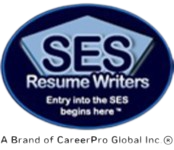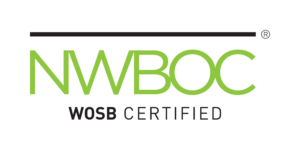ECQ Examples
Executive Core Qualification Examples
Executive Core Qualifications (ECQs) are among the most critical components to a competitive SES application. Many candidates find it helpful to review ECQ examples and samples while preparing ECQ essays for an SES application. While this can help build momentum in the ECQ writing process, it is important to reference high-quality examples – each person is different and so are their ECQs.
To help you prepare your best ECQs, we have provided two real, high-quality examples from Leading Change and Leading People essays. These examples are not formulaic, and as such cannot be copied – their goal is instead to demonstrate how the core competencies can be illustrated through writing in a clear, concise, engaging way that is also highly readable.
The ECQ Examples below have been shortened to remove personal details and additional competency information.
Get A FREE CONSULT & QUOTE
Table of Contents
How Do I Incorporate ECQs into Your Resume?
How Do I Connect ECQs to Personal Experience?
How Do I Format Executive Core Qualifications?
How Do I Format SES Resumes with ECQs?
How Do I Write About Executive Core Qualifications?
What are the Best Practices for ECQs?
Let SES Writers Help With Your ECQ Writing

Leading Change ECQ Example |

Leading People ECQ Example |
How Do I Incorporate ECQs into My Resume?
Defining professional and personal competencies is essential for assuming a Senior Executive Service (SES) position, whether the resume is submitted with ECQs via USAJOBS or in another form. Additionally, when ECQs are required to be incorporated into a 5-page resume, best practices are to use no more than 250 to 300 words in the CCAR format and integrate them into the related position that must be within the past 10 years.
Executive Core Qualifications (ECQs) consist of five “core competencies”:
• Leading Change
• Leading People
• Results Driven
• Business Acumen
• Building Coalitions
Powerfully written ECQ essays clearly demonstrate the applicant’s ability to contribute to a federal corporate culture. Individuals applying for SES positions must devote a large portion of their resume to describing how well they can address these competencies. If an applicant’s SES qualifications are not drafted as clearly and as richly as possible on their resume, the hiring manager may not be impressed enough to consider the applicant for a position in their organization.
How Do I Connect ECQs to My Personal Experience?
Not only do ECQs need to establish and define the competency and accomplishments of job applicants, but they should also incorporate personal experiences as they relate to ECQs. Each ECQ should provide real-world examples of how the applicant contributed to “leading change” and “leading people,” while supporting these examples with personal insights into each example. For example, excellent ECQ essays include in-depth descriptions of interpersonal skills, oral communication abilities, consistency of ethical and fair behavior within the workplace, and commitment to serving the best interests of the public.
ECQs and personal experiences should reveal applicants as being flexible employees who are open to new ideas and are able to lead change. They should show applicants as being resilient, optimistic, and unbending under adversity. Examples provided in an SES resume must present the applicant as someone who employs strategic thinking techniques, combined with strong leadership and visionary skills for addressing a company’s long-term goals.
Additionally, ECQs and personal traits should promote the applicant as someone who is adept at conflict management, inspiring commitment to teamwork, resilience, and facilitating cooperation among key players.
How Do I Format Executive Core Qualifications?
ECQs must be written according to the Challenge-Context-Action-Result (CCAR) model, in which “Challenge” describes a problem encountered by the applicant, “Context” summarizes how the applicant tackled the problem, “Action” discusses specific actions the applicant took to resolve the problem, and “Result” provides examples of positive outcomes emerging from the applicant’s actions.
Effectively written ECQs should be descriptive but easy to read, incorporate bullet points and paragraphs for emphasis, we do not recommend inserting categorical headings and subheadings, and avoid subjective statements when writing about ECQs and personal traits. Copies of awards, certificates, or diplomas should not be attached, nor should an SES resume identify the age, sex, ethnicity, or religion of the applicant.
How Do I Format SES Resumes with ECQs?
The 5-page resume format and the 10-page resume format are the most difficult resumes to create. Read the vacancy announcement in its entirety because some ECQs must be one page each. These resumes include the applicant’s executive career experience, summaries of their five ECQs, Technical Qualifications (TQs), personal traits conducive to the success of the organization, and other essential SES qualifications.
Hiring managers expect ECQ and SES resume formatting to adhere to specifications. Consequently, an SES resume containing errors in formatting may not receive the attention needed for the applicant to be asked to a first interview. Relying on professional resume writing service experienced with the 5-page resume format and the 10-page resume format with 1″ margins and 12 point font is strongly recommended when applying for an SES position.
How Do I Write About Executive Core Qualifications?
 Writing your own ECQs can present an unexpected challenge. You likely have a wealth of richly relevant experiences to speak of, yet you may discover that you have a hard time choosing or condensing these experiences into cohesive anecdotes that fit the Executive Core Qualifications.
Writing your own ECQs can present an unexpected challenge. You likely have a wealth of richly relevant experiences to speak of, yet you may discover that you have a hard time choosing or condensing these experiences into cohesive anecdotes that fit the Executive Core Qualifications.
Even with these examples in mind, knowing how to bring them from brain to paper can often come as a further challenge. It requires communicating how you exemplify these competencies in a way that balances the fine line between confidence and arrogance, or between descriptiveness and unnecessary wordiness. This balancing act requires exceptional storytelling skills and a strong grasp of grammar and syntax.
Before preparing to write about your ECQs, take some time to think through what these qualifications are asking you to show. It may sound simple, but consider what the SES will notice as they sift through job applications. What do these qualifications mean, in your own words? What do they say about you and your ability to fulfill this role with expertise?
Next, jot down the ideas that come to mind. Think about your career highlights, any accolades you’ve received or specific accomplishments that can quantifiably measure your success. Analyze how these naturally reflect one of the five competencies:
- Leading Change
- Leading People
- Driving Results
- Business Acumen
- Building Coalitions
Now comes the writing of the statements themselves. Typically ranging from one to two pages, each ECQ follows the CCAR model. This model allows for a narrative flow that will guide you through each example you offer. The more specific your challenge and the more quantifiable your success, the bigger an impact your statement will make.
The team of highly qualified professionals at SES Writers is here to help. We can help you turn your experiences into expertly crafted applications that will increase the chance you will be chosen for an interview. We are an industry leader in federal and SES resume writing — with more than 37 years of experience under our belt, we’ve fine-tuned the art of writing a successful ECQ statement.
Get Professionally Written ECQs
What are the Best Practices for ECQs?
No two ECQs are the same — and we want to help your application stand out as one the SES can’t resist. Following best practices can help your ECQ statement stand out, even when compared against a pool of exceptionally qualified applicants.
Understand the Core Qualifications — Inside and Out
What are the ECQs? We’re not talking about what the acronym stands for or the terms themselves. What do they mean? What does the SES look for when they talk about driving results or building coalitions? Why are these competencies necessary for employment in the SES? What will they tell about you, your experiences, your skills and your drive?
There are 28 competencies that comprise these five qualifications and your statement should reflect concrete examples of how your experience speaks to these competencies. A number of these fit organically within each of the categories. For example, Leading Change considers competencies such as vision, flexibility and strategic thinking. A solid Business Acumen story should showcase your financial, human capital and technology management. Your Building Coalitions example should touch upon your ability to build partnerships and be politically savvy enough to influence and network with others.
Take the time to consider each qualification on this list and how your stories can best address them. Diving deep into this mindset is possibly the most important tip we can offer.
Business Acumen ECQs
Even in this unique writing style we call ECQs, Business Acumen stands out as a little bit different. Of course, each ECQ should be executive in scope, fall within the past 10 years, follow the Challenge-Context-Action-Resul
For example, your Leading People ECQ will ideally include two career stories that address the competencies of team building, developing others, conflict management, and leveraging diversity.
Business Acumen has three competencies (Financial Management, Human Capital Management, and Technology Management), but unlike the other ECQs, they don’t always “flow” as naturally together.
In fact, many people find it extremely difficult to think of career stories that incorporate all three of the Business Acumen competencies. And even when they do, the stories tend to be overly dense and confusing because there’s just too much information packed in there, and we’ve found that the review board doesn’t like this approach.
Here is a highly effective best practice and perspective to consider for Business Acumen: Imagine you are on the review board. You may be reading career stories from a senior military officer, a corporate executive, or a seasoned federal manager. Moreover, the setting could be anywhere in the world, from the boardroom, to the battlefield, to countless other work environments. Regardless of the applicant’s background or the setting, you need to be able to see that the applicant is comfortable and capable in managing the financial, human capital, and technological aspects of programs and organizations.
So, when writing your Business Acumen examples, think of this particular ECQ as three “mini-ECQs,” instead of trying to combine the topics of financial, human capital, and technology management. The examples may have to be a bit shorter than normal, since all three still have to fit within the two-page limit. Additionally, the three CCAR examples can come from different positions or programs within the past 10 years, or they can come from the same position, but they should stand on their own.
Ultimately, by taking this straightforward approach, you can more clearly present your top career stories while effectively addressing the Business Acumen competencies.
Familiarize Yourself with Other ECQs
The more samples you read, the tighter your grasp will be on exactly what the SES looks for in applicants. There are plenty of options that can give you a sense of what works and what doesn’t, and provide inspiration for examples you can pull from your own professional experience. Take a look at these examples of the “Leading Change” or “Leading People” qualifications to get started.
Know What Is Needed
This goes beyond a knowledge of the CCAR method, although an understanding of this narrative flow is important to understand. Make a note of what information is needed. For example, think relevant context, specific numbers, sustainable impact and any lasting lesson learned. Make sure this ties directly into the overarching picture: How have your achievements made you the right fit for this job?
No Square Pegs in Round Holes
You likely have a plethora of shining success stories to choose from. However, we advise against thinking of these career highlights first and then trying to forcibly package them into whichever competency you feel works best. Make sure that they truly reflect the heart of the qualification you’re attempting to portray before beginning your ECQ statement. The more specific and relevant to the ECQs your examples are, the stronger your application will be.
There are a few different approaches you may want to try:
- Select an example and compare it to the list of five competencies
- Analyze how it addresses the core of these competencies — and whether any are a natural fit
- Begin to draw out the parallels as clearly and directly as you can
Once you have a roadmap in mind, you’re ready to begin writing.
For more insight into writing your own ECQs, we’ve compiled an online training manual that will help you along your way. If you need help evaluating your relevant experience and mapping it to the competencies, you can benefit from the guidance of a trained professional walking you through the nuances and challenges involved.
Let SES Writers Help With Your ECQ Writing
Crafting compelling ECQs goes beyond having the experience to support your claims. Even the most qualified candidates may struggle to express ECQs clearly within the structure of a resume.
While a poorly written resume might be passed over during the hiring process, a well-written resume containing strong evidence of ECQs can impress hiring managers and land you an interview, bringing you one step closer to a position in the SES.
To give your application the highest chance of success, you may want to enlist the help of a professional resume writer. The team of certified writers and career experts at SES Resume Writers has developed more than 3000 SES applications, giving us the specialized knowledge to help you write stand-out ECQs. The professionals we work with go on to find success — after working with us, 99.6% of our client are extremely satisfied.
Strong ECQs can propel you toward a career in the SES — let us guide you through the application process. Contact us for a free consult to learn more about how our resume writers can help you put your best qualities down on paper.
Career Pro Global performed outstanding work in writing my ECQs. I came from the private sector and did not know anything about the ECQ process and the difficulty in creating them. The career advisor took the time to explain to me in an initial call how the process would work and put me at ease. My executive writer provided me with a questionnaire and he was able to take the information I provided and created ECQs that was approved by the QRB and now I am one of the newest members of the SES.
– K.A.
Learn More about ECQ Writing
Page Updated February 25, 2020


